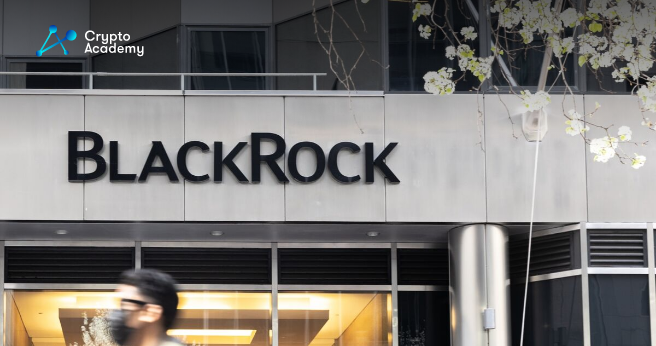BlackRock Being Investigated By US Government Over Alleged Chinese Ties

Amid increasing tensions between the United States and China, BlackRock, the American multinational investment management corporation, finds itself under the scrutiny of a U.S. congressional committee. The House of Representatives’ Select Committee on the Chinese Communist Party (CCP) is investigating allegations that BlackRock and index provider MSCI facilitated investments into Chinese companies blacklisted by the U.S. government.
Accusations against BlackRock and MSCI
The committee alleges that BlackRock and MSCI have channelled American capital into Chinese companies implicated in human rights abuses or deemed instrumental in boosting China’s military capabilities. The CCP-related committee’s letters, released on Monday, claim that these blacklisted Chinese companies have been beneficiaries of substantial investment, facilitated by the two firms.
Responding to these accusations, BlackRock strongly denied any misconduct, stating that it complies with all applicable U.S. government laws in all its investments, whether in China or other global markets. The company pledged to continue engaging directly with the Select Committee on the issues raised. Despite this, BlackRock’s shares were down by 0.8% in mid-afternoon trade, lagging behind the primary stock indexes.
China’s Response and the Wider Impact
MSCI has also stated that it is “reviewing the inquiry” from the committee. In a related development, a spokesperson from China’s embassy expressed the view that the move to politicize economic, trade, and investment issues counters the principles of the market economy and international trade rules.
This probe into BlackRock and MSCI’s activities reflects the broad impact of the escalating tensions between the U.S. and China on U.S. companies. This comes in the wake of a series of disagreements on various sensitive issues, including Taiwan and Russia’s invasion of Ukraine. The probe underscores the global ramifications of these geopolitical conflicts on corporate America.
Committee’s Power and Consequences for BlackRock
Formed in January when Republicans took control of the House, the Select Committee aims to highlight the importance of competition with China to the American public. Though the committee does not write legislation, it has the ability to make policy recommendations and subpoena executives and officials.
Representative Mike Gallagher, the committee’s Republican chair, declared in April that he would issue subpoicompnaes for executives who fail to cooperate with its investigations. The committee’s allegations against BlackRock and MSCI were first reported by the Wall Street Journal.
An initial review by the committee reportedly found that the companies facilitated investments into dozens of blacklisted companies. The committee, however, suggests that the “true scale is likely much larger,” signaling potentially more significant implications for BlackRock. As investigations continue, the corporate world will be watching closely to see how these accusations against BlackRock will impact its operations and reputation.
BlackRock’s Move into the Cryptocurrency Space
Adding to BlackRock’s current narrative is the firm’s recent foray into the digital currency domain. BlackRock, known as the world’s largest asset manager, has submitted an application to the U.S. Securities and Exchange Commission (SEC) to launch a Bitcoin Exchange-Traded Fund (ETF). This move symbolizes a significant endorsement of cryptocurrency by a major player in traditional finance, signaling an important shift in the broader acceptance of digital assets.
BlackRock’s ETF, if approved, will aim to track the performance of Bitcoin, offering investors exposure to the digital currency in a regulated and more familiar investment framework. This would offer investors the ability to gain exposure to Bitcoin without owning the underlying asset, thereby reducing the risks associated with digital asset custody.
However, the application comes amid a somewhat turbulent climate for cryptocurrency ETFs in the U.S. The SEC has yet to approve a Bitcoin ETF, citing concerns over market manipulation and volatility. Regardless of these concerns, BlackRock’s Bitcoin ETF application underscores the firm’s strategic pivot towards embracing digital assets, further blurring the lines between traditional finance and the burgeoning world of cryptocurrency.

Comments are closed.